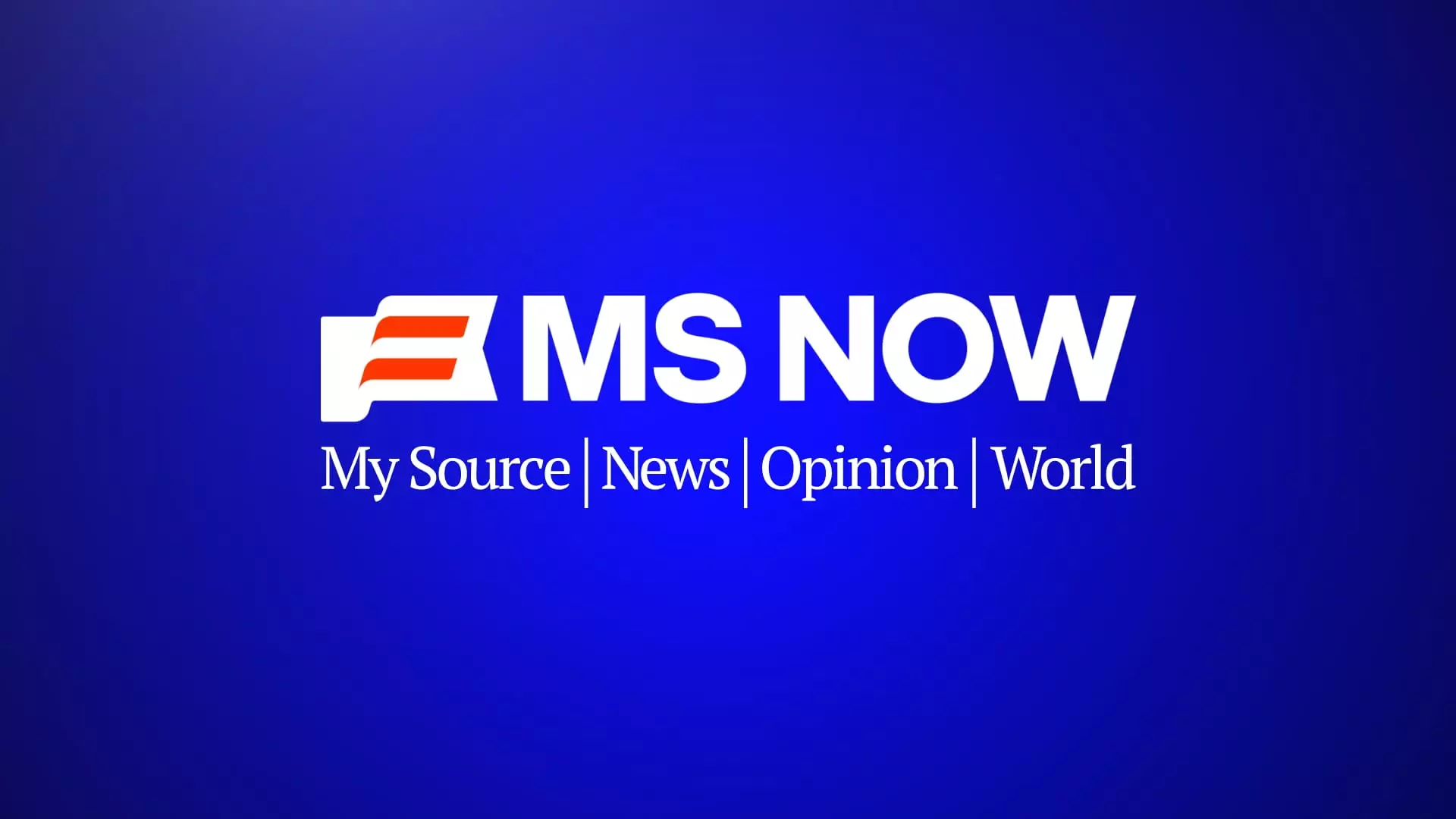In a landscape dominated by rapidly shifting media narratives, MSNBC’s impending rebranding signals more than just a name change—it reflects an industry grappling with its own credibility and core identity. The decision to shed the iconic Peacock logo and rename the network into My Source News Opinion World (or MS Now) raises questions about whether the move is purely strategic or symptomatic of deeper struggles within the network’s brand integrity. For decades, MSNBC has been perceived as a vital space for liberal-leaning political discourse, yet recent years have seen the network’s reputation scrutinized amid accusations of biased reporting and partisan echo chambers. Restarting renews this identity, but it also risks alienating viewers who see MSNBC as more than just a brand—they see it as a trusted source of news. Can a change in branding restore or deepen the perceived disconnect between MSNBC’s intentions and its audience’s expectations?
The Symbolic Significance of the Peacock
The iconic peacock logo isn’t just a corporate mascot; it’s a symbol embedded into the fabric of American television history. Its removal indicates an attempt to reinvent MSNBC’s image, perhaps aiming for a fresher, less partisan look that appeals to a broader, more diverse audience. However, this move could also be perceived as a retreat—a concession that the network’s previous branding no longer aligns with its aspirations or the realities of contemporary media consumption. It’s a risky gamble. Branding experts will tell you that logos form a subconscious bridge between viewers and content, fostering familiarity and trust. Stripping that away might disrupt existing viewer loyalty, especially among those who have relied on MSNBC as their go-to network for progressive perspectives. Will this makeover communicate a genuine shift towards balanced journalism, or will it come off as superficial window-dressing designed to mask ongoing biases?
A Strategic Shift Toward Independence and Credibility
What stands out amid this transformation is MSNBC’s concerted move towards establishing an independent newsroom—hiring up to a hundred new journalists, creating a separate Washington bureau, and emphasizing a move away from NBC News’s overarching influence. This strategic shift suggests an acknowledgment of the network’s need to foster credibility in an era where trust in media is wavering. The attempt to carve out an autonomous identity indicates that MSNBC recognizes its brand struggles are directly linked to perceptions of bias, partisanship, and credibility. By creating a more modern, independent operation, the network seemingly hopes to reposition itself as a more reliable source of information—and not just opinion. Yet, the challenge remains: can a rebrand and structural independence genuinely foster trust, or will it merely be window dressing for ongoing editorial tensions and political pressures? The answer likely depends on consistency, transparency, and an unwavering commitment to journalistic integrity—traits that are easier to promise than to deliver.
The Broader Implications of Corporate Rebranding
Versant’s wider effort to change logos across its brands, including CNBC and sports channels, signals an overarching strategy to redefine its corporate image. While CNBC’s decision to retain its distinct identity might suggest confidence in its current positioning, the removal of the NBCUniversal peacock across the portfolio indicates a desire to detach from the conglomerate’s past, possibly to attract investors or appeal to a new demographic. However, corporate rebranding at this scale often risks alienating loyal viewers and leaving brand equity in limbo. It’s not just about aesthetic updates—it’s about reconciling internal identity with public perception. What the industry fails to accept sometimes is that viewers develop emotional attachments to logos and symbols—these brand markers become part of their news experience. Stripping them away might be a necessary step for renewal, but it’s also fraught with perilous consequences for viewer trust and the legacy of the brands involved.
The Political and Cultural Underpinnings of a Rebrand
In the context of today’s polarized media landscape, MSNBC’s rebranding could be interpreted through a political lens. Center-leaning liberals often find themselves caught between the extremes—wanting progressive values reflected but also craving credible, unbiased journalism. MSNBC’s efforts to redefine itself could be seen as a calculated move to solidify its position within this space—striving to be seen less as a partisan outlet and more as a balanced, responsible news organization. Yet, with political skepticism flourishing, the risk remains that the rebrand becomes yet another symbol of corporate spin, rather than genuine change. If MSNBC is committed to maintaining its credibility, it must go beyond superficial branding and ensure its journalistic practices align with its new identity. Only then can it hope to win back skeptics and reassert its rightful place in America’s complex media ecosystem.

